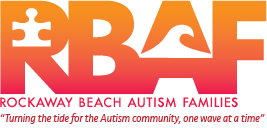Ableism
14 OCTOBER 2021
Autism caregivers—how many of us play our violins about how an autism diagnosis changed the “What to Expect When You are Expecting…” trajectory of our lives? Folks, ashamedly I have to put my hand up. Here is Kami, a vocal community autism advocate, admitting that no—autism does not rock—oftentimes it actually sucks! In the past few months, my nonverbal daughter with autism who is about to be 13 this Saturday!, has increasingly been stoking an uncontrollable firestorm of defiant behavior, and yes, I started to burnout in my own abyss of self-pity and isolation. (Folks, my Soa could be as destructive as Vulcan, god of crafting and fire!). However, some recent discoveries prompted me to reflect on my own chutzpah with self to instead learn from my daughter and her peers—who like the rainbow, reflects different hues that are different, but not muted. Thus, the introduction to my assertion that though sometimes autism is daunting, as parents and caregivers, most of us are not ableist. Also searching for therapies and other resources for our children—does not mean we’re trying to cure autism—we’re just exploring every possible avenue for them to live life to the fullest—wherever they are on the spectrum.
What is ableism? According to academics, (Castañeda & Peters, 2000): “Ableism is a form of discrimination or prejudice against individuals with physical, mental, or developmental disabilities that is characterized by the belief that these individuals need to be fixed or cannot function as full members of society.”
Here is the question. Does exploring therapies to help your child mean that you are an ableist? For example, regarding ABA (Applied Behavior Analysis, a type of therapy focusing on improving social skills, communication, reading, and academics as well as adaptive learning skills, such as fine motor dexterity, hygiene, grooming, domestic capabilities, punctuality, and job competence)—I was particularly touched by the following from Eileen Lamb, founder of The Autism Cafe, who shared the ups and downs of raising a severely autistic child while being on the spectrum herself:
“An autistic child grows up in a world comprised almost completely of neurotypical people, and they have to learn how to function within it… The biggest criticism about ABA therapy is ableism, discrimination in favor of able-bodied people. I don’t agree that ABA therapy is ableist. You can help someone without changing who they are. Charlie (her son) isn’t in ABA therapy because we want him to be normal. We want him to be safe, independent, and to learn to communicate, to decrease his, and yes, our frustration… I’m not trying to ‘fix’ Charlie’s autism.”
This made me think. Imagine growing up in a world where you were so different that you felt like you were in a fishbowl, lovingly sheltered, but misunderstood and largely ignored?
Currently Soa is in a private school centered around Floortime (also known as DIRFloortime), an intervention used to promote development through play. Coming from a strict Catholic school background with some experiences in NYC’s public education system, I was of the opinion that the more discipline, the more disciplined the child. However, Soa’s dad disagreed. He feels that Soa learns better through unstructured play. The point is as parents, whether we agree or disagree, all we can do is explore every passage. We’re not trying to cure what makes our child different—but to help them independently not just manage the daily routines of life, but to excel at their God-given purpose. And I’m not just talking about brushing one’s teeth, getting dressed and tying shoelaces.
In a telling email interaction with a self-described autistic adult, I learned, “We're really only informed by disabled and autistic young people and adults.” Folks, we’re all in this together—and I’m learning from adult autistics, “O.G.” parents who’ve been there, done that and wrote the book, and my own daughter.
Join Rockaway Beach Autism Families at our next meeting on Thursday, October 21st, 7p.m. at Knights of Columbus (333 Beach 90th Street). Plus, come costumed as your favorite super hero at our Halloween Treasure Hunt on Beach 97th on Sunday, October 31st, 1 p.m. to 3 p.m. For more info, visit Rockaway Beach Autism Families on Facebook/Instagram, or email: kami@rockawaybeachautismfamilies.org
By Kami-Leigh Agard
